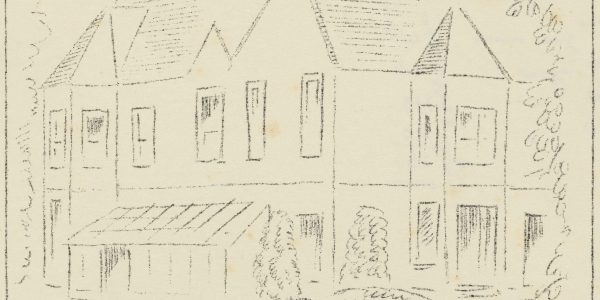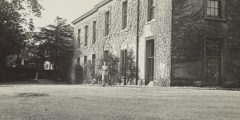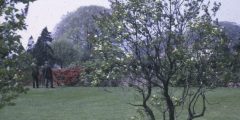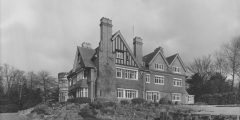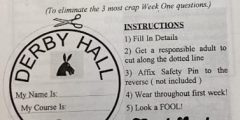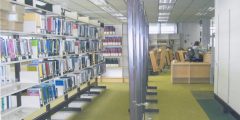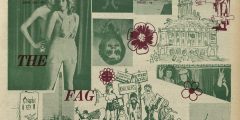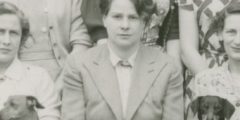House of Many Names: Tracing the Evolution of Paton House
November 17, 2025
Paton House, a late-Victorian brick building featuring a large canopy over the opening, a conservatory adjoining the library and a Baroque interior, was designed in 1881 by Robert Evans and William Jolley, both of whom were Nottingham-based architects who had been trained by Thomas Chambers Hine. The property, which went on to be built in …
Botanists and Businessmen: meet the residents of Highfield House
August 21, 2025
Although it is today part of the university campus, when Highfield House was built at the end of the 18th century it would have been surrounded by pasture, and home to little more than a herd of cattle. Although the area would soon become well known as the site of luxurious homes for the wealthy businessmen …
Croquet Lawns and Coach Houses: Echoes of Lenton Mount
August 7, 2025
Today known as The Hemsley, the building originally called Lenton Mount is named for its original owner: William Sidney Hemsley. Hemsley was a prosperous lace manufacturer in Nottingham who purchased the plot of land on which his house was built from the Lenton Hall estate in 1904. The property was designed by Nottingham architect William …
Beyond the Sunken Garden: The Many Lives of Lenton Hurst
July 22, 2025
Lenton Hurst is best known for its peaceful formal gardens, but there’s much more to this late Victorian delight: in its long life it has been a home, a college, a student hall of residence and an office, and many of its original features still survive… The land where Lenton Hurst stands today was purchased …
Hugh Stewart Hall: from Marlepitt to Manor House
July 15, 2025
Today, Hugh Stewart Hall is concealed in a wooded hollow, accessible by a winding path leading through an iron pergola covered in climbing plants and past the old tennis courts to the garden, where the story of this remarkable property began. The east side of the garden was once a ‘marlepitt’, according to 16th century …
The Beginnings of University Park
May 22, 2025
Did you know that University Park was originally intended to be a ‘model village’ rather than a university? Prominent industrialist Sir Jesse Boot purchased the Highfields estate in 1919, with the initial idea of transforming it into an attractive self-contained suburb to house Boots employees. However, around the same time, he had been engaging in …
Extra mirrors and sewing rooms: “the civilising effect of female company upon the male population” in mixed halls of residence
September 5, 2024
Student placement Alice Lilley writes about her work on the Derby Hall archive at Manuscripts and Special Collections and what struck her about how student life has changed since the 1960s. As a volunteer through the Arts Work Placement module, I worked on the Derby Hall Collection for Manuscripts and Special Collections. This was an …
George Green Library: Then and Now
June 18, 2024
To commemorate 60 years since the opening of George Green Library, Tracey O’Sullivan, Library Advisor, shares her memories and photographs from working there since 1985. Imagine the scene: no computers, no mobile phones, no Wi-Fi, no laptops, no self-service machines, just lots of books, journals and the like; card index cabinets and photocopier machines that …
Uncovering feminism and sexism in the University Archives
May 13, 2024
This is a guest post by Samantha Brinded, who volunteered with Manuscripts and Special Collections between May 2023 and March 2024. For decades, student magazines have played an integral role in university culture, and the University of Nottingham is no exception. In 1939, students established a newspaper called Gongster following on from the campus arts …
Audrey Beecham: Warden, historian, poet, anarchist, feminist, and champion of the underdog
March 1, 2024
Helen Audrey Beecham (1915-1989) came to the University of Nottingham in 1950 having been appointed warden of the newly built Nightingale Hall, which at the time was a women-only hall of residence. She served as warden and also lecturer in social and economic history for 30 years until her retirement in 1980. Before coming …

